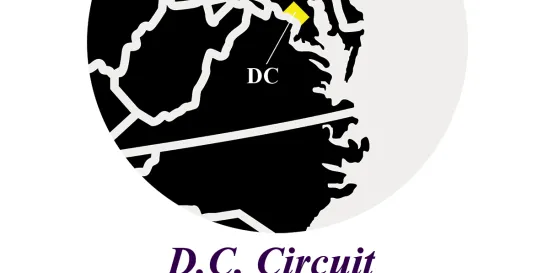On August 29, 2023, a three-judge panel on the U.S. Court of Appeals for the District of Columbia Circuit unanimously ruled against FDA on the Agency’s review of Fontem LLC’s “unflavored” (i.e., tobacco-flavored) myblu electronic nicotine delivery system (ENDS) products, vacating FDA’s marketing denial orders (MDOs) for these products. For Fontem’s non-tobacco flavored myblu ENDS, however, the Court upheld FDA’s denial, deferring to the Agency’s general concerns surrounding “substantial risks of flavored products to youth.”
Under the Tobacco Control Act (TCA), a Premarket Tobacco Product Application (PMTA) applicant must demonstrate that the ENDS product is “appropriate for the protection of the public health” (APPH). Specifically, the TCA directs FDA to assess the public health impact of a new tobacco product “with respect to the risks and benefits to the population as a whole, including users and nonusers of the tobacco product, and taking into account – (A) the increased or decreased likelihood that existing users of tobacco products will stop using such products; and (B) the increased or decreased likelihood that those who do not use tobacco products will start using such products.” 21 U.S.C. § 387j(c)(4).
In April 2020, Fontem submitted PMTAs for its myblu Device Kit, as well as a variety of non-tobacco flavored and tobacco-flavored myblu liquid pods:

- Tobacco-flavored myblu ENDS products:
- myblu Device Kit
- myblu Intense Tobacco Chill 2.5%
- myblu Intense Tobacco Chill 4.0%
- myblu Intense Tobacco 2.4%
- myblu Intense Tobacco 3.6%
- myblu Gold Leaf 1.2%
- myblu Gold Leaf 2.4%
- Non-tobacco flavored myblu ENDS products (not publicly disclosed due to potential confidential commercial information (CCI) issues)
Following a nearly two-year review period of the application, which included an FDA-issued, 22-item deficiency letter identifying FDA’s concerns and requesting additional information, FDA denied the applications for all of the above products in April 2022. Note: Although the Court characterizes “unflavored” ENDS as vaping products with “the same flavor as more traditional tobacco products—menthol or tobacco,” [Opinion at 4] the appeal did not cover FDA’s denial of the myblu menthol liquid pod, which recently received an MDO in July 2023. The DC Circuit opinion, which refers to tobacco and menthol-flavored ENDS as “unflavored,” reflects the common misperception that ENDS products, like traditional tobacco-leaf containing products, are inherently tobacco-flavored. In reality, however, ENDS products do not contain any tobacco, and the base ingredients (PG, VG) used in e-liquids do not impart a tobacco or any characterizing favor. Rather, all favors in ENDS, including tobacco favor, must be separately added to the e-liquid. To avoid further confusion, we refer to “tobacco-flavored” products accordingly in this post.
In vacating the MDO for the unflavored myblu ENDS products, the DC Circuit criticized FDA for its failure to perform a “holistic public health analysis” required by the TCA. Specifically, the Court held that the Agency cannot deny PMTAs for tobacco-flavored ENDS based on “highly technical” deficiencies or “for failing to provide very specific information about the physical properties of [the] products” without conducting the required statutory balancing of an application on public health grounds. As provided in the FDA press release concerning the Fontem myblu MDOs, the deficiencies were related to discrete items such as the stability studies, manufacturing-related concerns, or product design features.
For these specific deficiencies related to the tobacco-flavored myblu products, the Court stated that if any technical or product-related “highly granular deficiencies” are essential to the public health standard and application, then the Agency must “require fine-grained requirements of all tobacco products” by “promulgating tobacco product standards or manufacturing regulations. Otherwise, the Agency must consider the overall public health consequences of the product.” Opinion at 23-24. The opinion goes on to state:
Congress established a comprehensive and interlocking scheme for the regulation and approval of tobacco products, defining the considerations the FDA must use to evaluate whether a product is appropriate for the protection of the public health and providing for a regulatory process that accounts for the competing interests regarding the production, marketing, and safety of tobacco products. Cf. FDA v. Brown & Williamson Tobacco Corp., 529 U.S. 120, 159–60 (2000) (emphasizing Congress had for decades “creat[ed] a distinct regulatory scheme for tobacco products”). The FDA cannot simply ignore Congress’s detailed directives when denying tobacco marketing applications.
Opinion at 24 (emphasis added).
The Court also took issue with FDA’s review process for the tobacco-flavored applications. At one point, the Court even stated that FDA’s deficiency letter suggested that providing the missing information “would be sufficient for the agency to approve Fontem’s products,” or for requesting a specific item and faulting Fontem for not providing another item that was not previously requested (such as quality control information for a different facility). Opinion at 22. By doing so, the Court criticized the Agency for acting arbitrarily and capriciously by “shifting the regulatory goalposts without explanation.” Opinion at 23. According to the DC Circuit, “[t]he lack of consistency and notice to regulated entities is another unlawful consequence of the agency’s departure from the holistic public health inquiry.” Id. at 24.
The DC Circuit, however, upheld the denial of the non-tobacco flavored myblu products. In doing so, the Court reasoned that, for the flavored products, FDA “focused on the question central to the public health inquiry”— i.e., whether Fontem was able to show that the benefits of its flavored products to adult smokers outweighed the substantial risks of flavored products to youth. Because the primary study Fontem conducted failed, in FDA’s judgment, to show that its flavored products had any added benefit for adult smokers relative to unflavored products, the Court concluded that FDA acted consistent with the public health balancing required by the statute and denied Fontem’s petition.
This recent ruling appears to emphasize a holistic public health review for tobacco-flavored (and menthol-flavored) products with consideration of all public health factors. At the same time, the decision upholds a comparative efficacy approach – which does not consider all the public health elements – for flavored ENDS products. Thus, the decision offers a bifurcated take on the statutory APPH analysis, emphasizing different factors based on the flavor classification of the product.
This decision may also impact another high-profile MDO challenge in the DC circuit: Juul Labs Inc. FDA issued an MDO in June 2022 denying PMTAs for Juul’s tobacco and menthol pods (3% and 5% nicotine), as well as the device. FDA alleged Juul’s PMTA contained insufficient and conflicting data regarding genotoxicity and potentially harmful chemicals. Juul countered that FDA had not reviewed up to 6,000 pages of its PMTA that addressed FDA’s concerns. The DC Circuit granted an emergency stay of MDO. FDA then issued its own administrative stay acknowledging “unique” scientific issues that warrant additional review. Juul filed a 21 CFR § 10.75 request for supervisory review detailing substantive and procedural errors in the MDO. FDA administratively stayed the MDO and is re-reviewing its denial (and the DC circuit MDO challenge is being held in abeyance in the meantime). As everyone waits to see whether FDA will rescind the MDO, this decision from the DC Circuit may impact FDA’s review. If the Agency does not rescind the MDO, Juul will likely proceed with an appeal, in which this Fontem decision will now serve as precedent.





 />i
/>i

